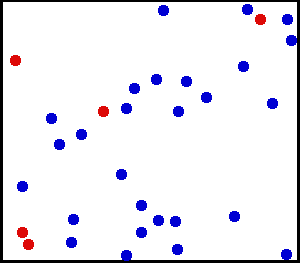Maybe I an just missing something obvious. Perhaps I missed school the day my biology teacher explained this. Then again perhaps my question is one that would have made my old high school bio and chem teacher frown and shrug and say, as he sometimes did, "If I knew that, I'd get a Nobel Prize."
So what I want to know is why do cells do what they do? I understand about the various organelles, and osmosis and such, I think, but why doesn't a cell just sit there? I am not religious, and I don't want to get those who are, started, but is it the divine spark? The ghost in the machine? Spiritum in machina? Or is it just electro-chemical reactions and the like? Sorry, if this is braindead of me to ask.
So what I want to know is why do cells do what they do? I understand about the various organelles, and osmosis and such, I think, but why doesn't a cell just sit there? I am not religious, and I don't want to get those who are, started, but is it the divine spark? The ghost in the machine? Spiritum in machina? Or is it just electro-chemical reactions and the like? Sorry, if this is braindead of me to ask.



